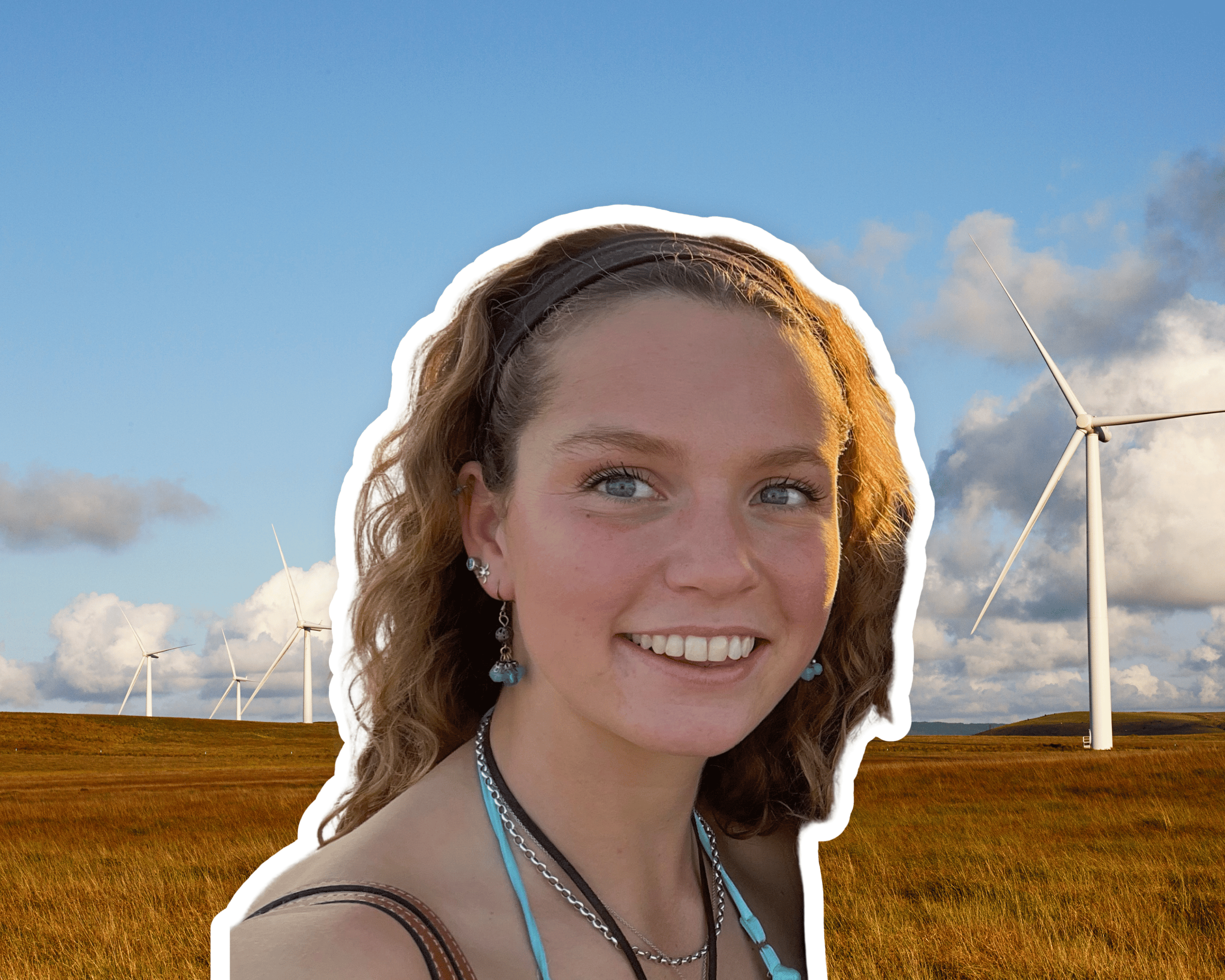I did my undergraduate degree in physical geography and that’s where I built a foundation in climate science, geospatial technologies and understanding geophysical systems. It was through various modules that I developed an interest in climate change and the need for technical solutions. For my dissertation I studied sea level rise in the Maldives which got me thinking more about energy security and sustainability, particularly in vulnerable regions. That experience made me realise I wanted to move beyond understanding the environmental issues and actually be a part of developing the engineering solutions to tackle them, which is what drew me to renewable energy engineering.
Studying at Exeter really stood out to me because of its leadership within sustainability and innovation. When I was researching the university, it was really clear that they had direction towards 2030 net zero goals which were being led by a lot of the research done here. I really like that the course doesn’t just encompass the practical engineering side of things, it also integrates environmental thinking and a forward looking approach to tackling the energy transition. The university has a big involvement in COP meetings and they’ve got a huge team heading there in the next couple of weeks. I wanted to be a part of a university that genuinely practises what they are teaching.
I love to surf as well, so there was a gravitation down here to the southwest for the waves. I love Cornwall, it’s such a beautiful part of the country. I love all the green spaces and areas around campus like the walled garden. It’s just a great learning environment here. The fieldtrip has been a real highlight so far, the integration between the practical aspect of the course and the theory was a great way to conclude my first month of studying down here.
Field Trip
Day 1 – Anaerobic Digestion
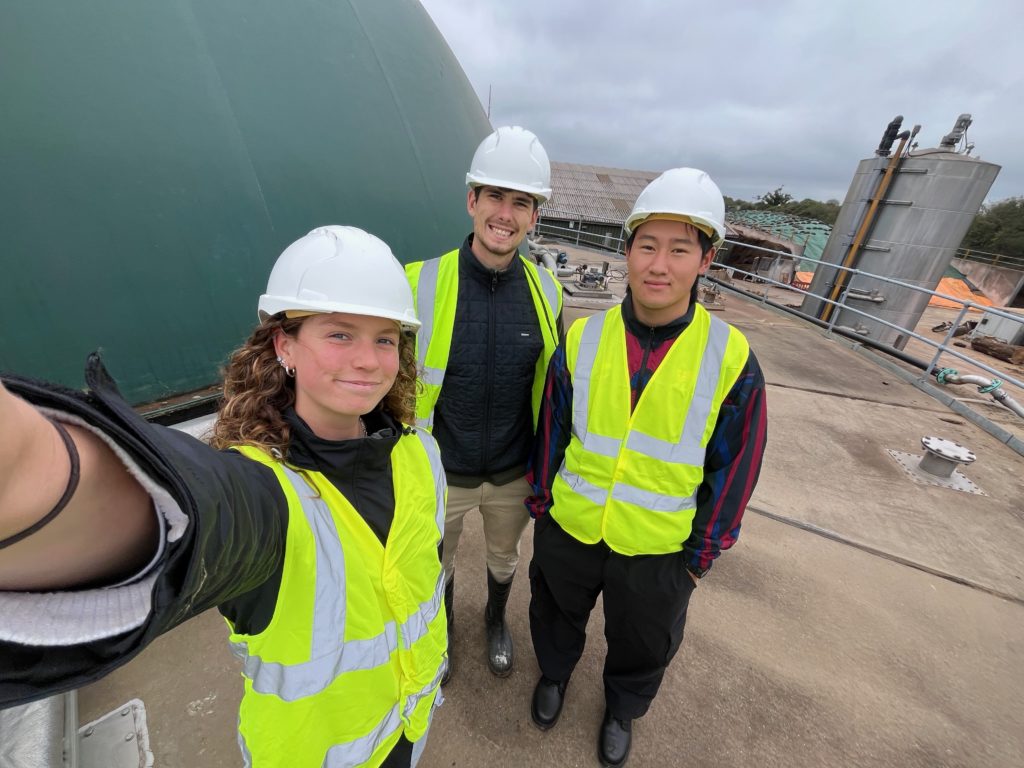
On the first day of the trip, we left campus and headed to Menchine Farm in Somerset, which is where UK biogas has an anaerobic digestion plant. Greg, who was the operations manager, gave us a tour. It was really great to see how the organic waste was being converted to biogas. We saw the woodchipper in action and all the piles of feedstock such as agricultural residues and wood biomass. It was explained to us how it’s pre-treated and homogenised to create consistent input for the digesters. Watching this process made it clear how important the feedstock quality is in order to maintain the gas yield and the system balance. I’ve not really researched the biogas area of renewables so it was really nice to have that tour and start to understand how important it is. Obviously for biogas you don’t need the sun, it’s a lot more reliable and it’s constantly ticking over. It was super interesting. From there we then went up to Pinkery outdoor centre, which is in Exmoor national park where we settled down for the evening which was a nice end to day one.
Day 2 – Off-grid Feasibility
We were based at Pinkery for the second day, which is a completely off-grid outdoor education centre. The purpose of being up there was to carry out a feasibility study into what technologies could be implemented to make the site 100% renewable and self-sufficient. The current set up includes a small wind turbine, which isn’t particularly efficient. There are also solar panels, a biofuel burner and a diesel generator. Our primary goal was to phase out the diesel generator, so the site solely relies on renewable energy.
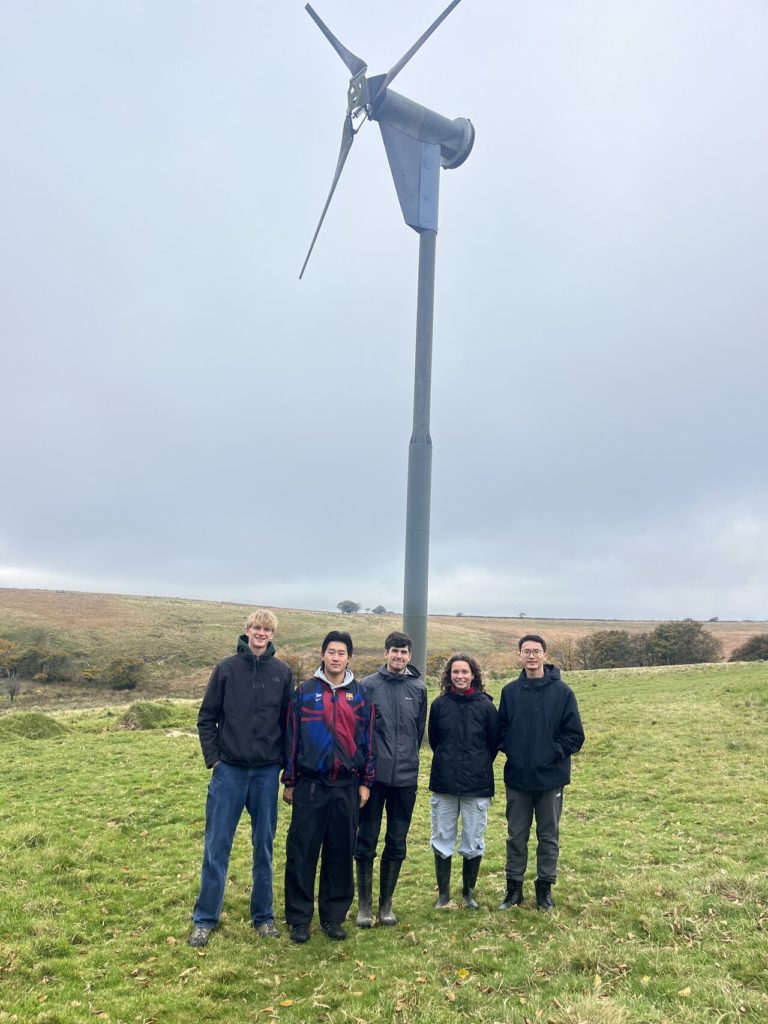
As the site was situated in Exmoor National Park, it’s quite challenging. There are a lot of constraints environmentally and socially, for the installation of these new technologies. Our group have decided we want to upgrade and relocate the existing wind turbine because it’s in quite an inefficient location. There’s a lot of trees obstructing it, and it’s down in a valley where there’s not a lot of wind. We also plan to assess which turbine axis design would maximise that energy capture.
We are also reviewing the feasibility of installing a micro hydro turbine to harness the local stream flow as a reliable baseline energy source this will help with the consistent energy generation for things like the fire alarm, the fridges and freezers, and Wi-Fi. Exmoor has an issue of being quite misty, grey and overcast. They aren’t able to rely on solar all year round, and the wind turbine isn’t particularly efficient. Hopefully investigating other sources will help to improve the efficiency of Pinkery and out phase the generator. Day two was mostly investigating the site, understanding what worked, what didn’t work and taking our own measures within the field to understand what could work in the future.
Day 3 – Eden Project Geothermal
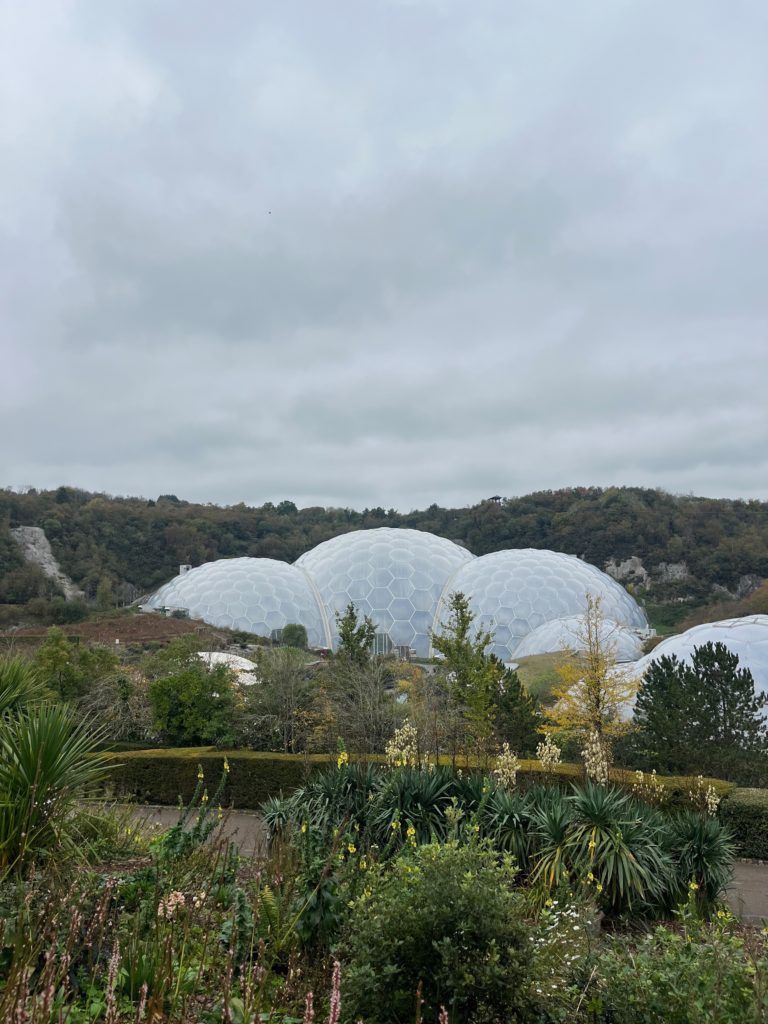
On the third day we were up nice and early, we left Pinkery and headed to Eden geothermal where we learnt about the site’s development. The geothermal well currently producing energy is almost 5000 metres deep, making it the deepest geothermal well in the UK. Eden geothermal plant supplies heat to the Eden Project biomes. The rainforest and Mediterranean Biome require a lot of heat to keep the plants alive, it’s cool that local geothermal was supplying this! I think what was more exciting was the future plans for the site. They currently have planning permission to install a second geothermal well, which will make the whole site more efficient and increase the power generation capacity to 5MW of renewable geothermal power. It was quite eye opening, they have all of the plans in place, but it’s just so expensive to start that process, they’re waiting on funding. Afterwards we had some time to wander around the Eden Project and had a talk from the sustainability manager, Charles. He was telling us about some of the exciting projects they have going on within Eden including their expansion within the UK. After a packed and very successful trip we got on the minibus and headed back to university.
Final thoughts
It’s amazing how complex and site-specific renewable energy solutions can be, especially in off-grid or environmentally sensitive areas. In Pinkery, I learned how integrating multiple energy sources with solar, biofuel and potentially micro hydro, requires careful consideration of the environmental, but also technical and social factors. I suppose my main takeaway from the trip would be thinking holistically when implementing green energy solutions to certain areas.
To anyone thinking about doing a postgraduate program in Cornwall, I would say do it! It is such a good environment down here. You have a close relationship with professors who are genuinely really interested in having discussions with you. It’s a very calm environment, with great study spaces to get your head down. I couldn’t recommend doing a postgraduate program down here enough!
Charlotte Sanders, MSc Renewable Energy Engineering
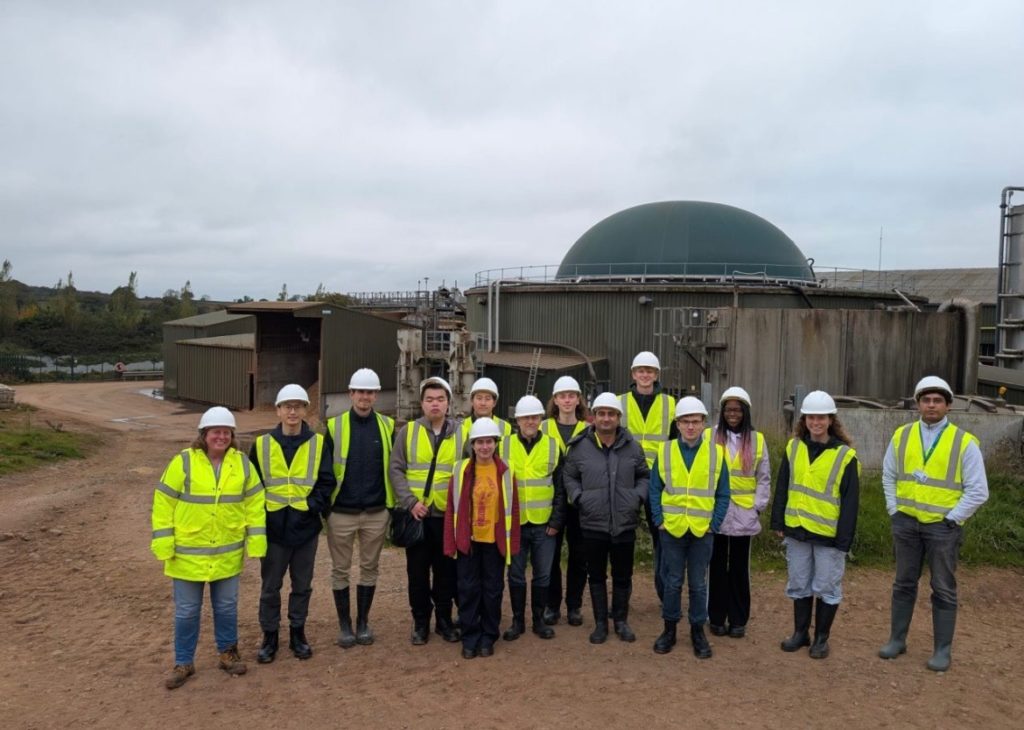
Charlotte studies within the University of Exeter’s Graduate School of Environment and Sustainability, which brings together experts from across the spectrum of earth and life sciences, engineering, humanities, social sciences and business. Our programmes are all designed with a focus on developing solutions to global challenges and creating a better future for our planet and its people.
Follow us! 👇

